Types of Writing Teaching Resources
Explore the different types of writing with your students this school year with printable RACES writing strategy worksheets, constructed response activities, graphic organizers and more teacher resources created by teachers for teachers.
This collection of curriculum-aligned teaching resources has been carefully reviewed by our expert teaching team to make sure every resource is classroom-ready — so we can make your lesson planning easier!
New to teaching the types of writing, or just looking for new ways to engage your students? Read on for a primer from our teacher team!
What Are the Different Types of Writing? 4 Main Writing Genres to Share With Students
If you're introducing the different types of writing — or different genres of writing — to your students, it can help to have some basic descriptions of each type at hand. That's exactly what our teacher team has put together for you!
When we sit down to write any text, we have a goal for writing. Sometimes we're looking to tell a story. Sometimes we want to share information. Other times a piece of writing is created to persuade the reader.
The goal or purpose of a text, as well as its audience, helps us determine what type of writing we need to create.
There are many different genres of writing that students will encounter as readers and writers over their lifetimes, but let's start with the four main types of writing that we cover in elementary and middle school.
1. Narrative Writing
Narrative writers tell stories, making up characters and creating different settings for their readers. The goal of this type of writing is to entertain the reader.
2. Persuasive Writing
If you're trying to convince a reader of something, you'll need to engage in persuasive writing. This type involves trying to convince a reader to take a specific action or to agree with your point of view.
3. Descriptive Writing
When we want to describe something to a reader, the type of writing we create is called descriptive writing. In this genre, we use vivid details to paint a picture in the reader's mind.
4. Informative Writing
If your goal is to create a piece of text that provides the reader with facts or instructions about a specific topic, the type of writing to choose is informative writing.
- Plus Plan
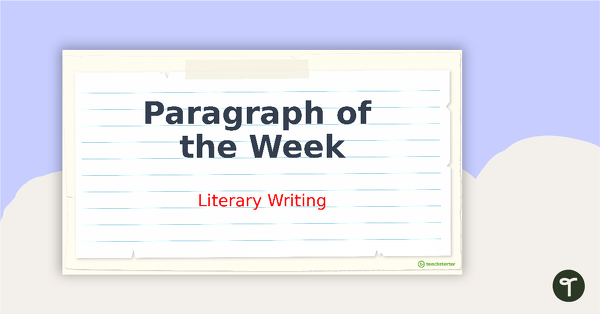
Paragraph of the Week PowerPoint - Literary Paragraphs
A Paragraph of the Week PowerPoint presentation to use when setting up this writing strategy in your classroom.
- Plus Plan
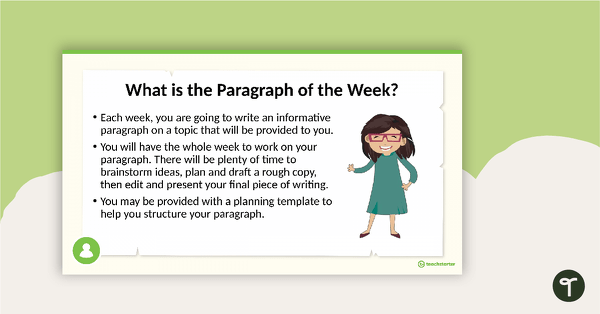
Paragraph of the Week PowerPoint - Informative Paragraphs
A Paragraph of the Week PowerPoint presentation to use when setting up this writing strategy in your classroom.
- Plus Plan
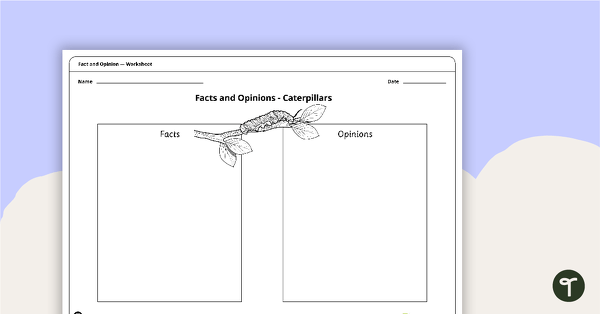
Facts and Opinions - Caterpillars
A fun activity for students to use when identifying facts and opinions about caterpillars.
- Plus Plan
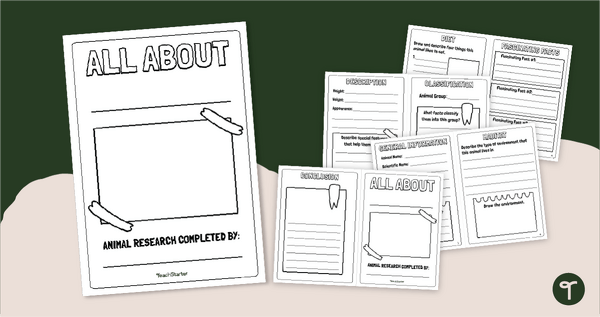
Informative Writing - Animal Research Task
Use a printable animal research organizer booklet for students to record facts about animals when learning to write informative texts.
- Plus Plan
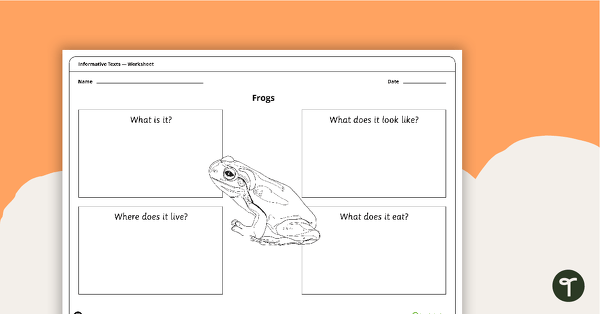
Build an Animal Fact File – Cut and Paste Worksheets
Use this set of 5 writing prompts to assess your students’ informative writing skills.
- Plus Plan
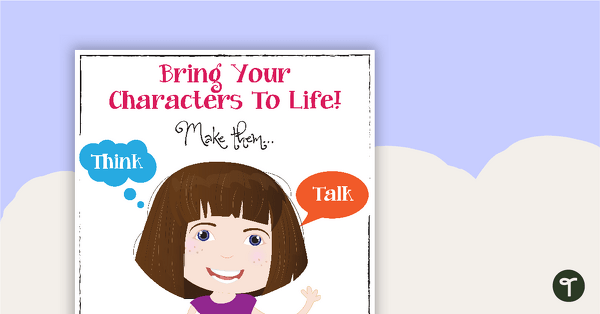
Bring Your Characters To Life Poster
A poster to remind your students to add detail and description to their writing to bring their characters to life.
- Plus Plan
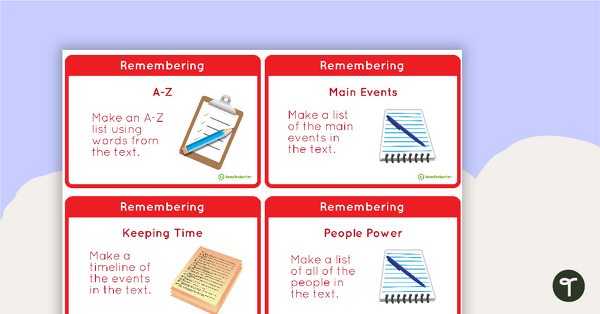
Bloom's Taxonomy Fast Finisher Task Cards - Upper Grades
44 Bloom's Taxonomy fast finisher activity cards.
- Plus Plan
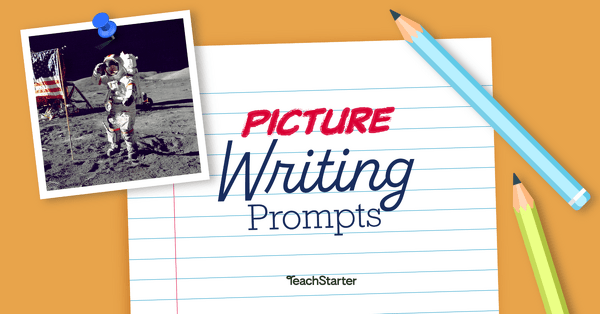
Picture Writing Prompts
These picture writing prompts are a great way to help students develop their writing skills. A visual writing prompt can be generated at random or chosen specifically.
- Plus Plan
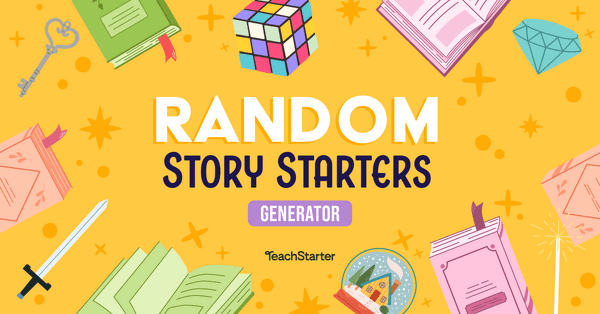
Random Story Starter Generator
Use the random writing prompts for kids in our short story generator widget to inspire your students creativity and boost their writing skills.
- Plus Plan
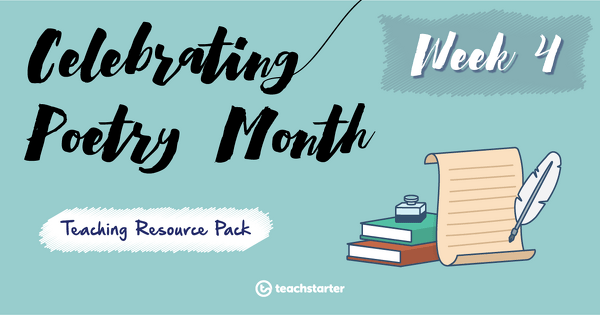
Celebrating Poetry Month in the Primary Grades – Weeks 4 and 5
Celebrate National Poetry Month in the primary classroom with this planning guide and set of resources.
- Plus Plan
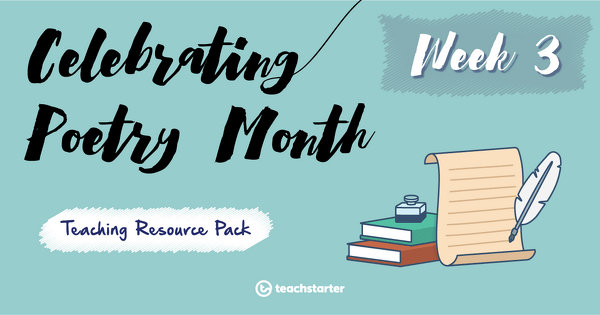
Celebrating Poetry Month in the Primary Grades - Week 3
Celebrate National Poetry Month in the primary classroom with this planning guide and set of resources.
- Plus Plan
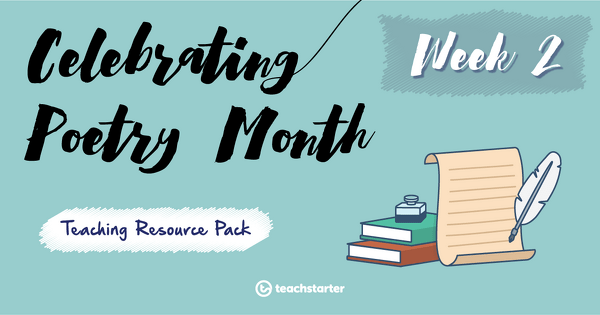
Celebrating Poetry Month in the Primary Grades - Week 2
Celebrate National Poetry Month in the primary classroom with this planning guide and set of resources.
- Plus Plan
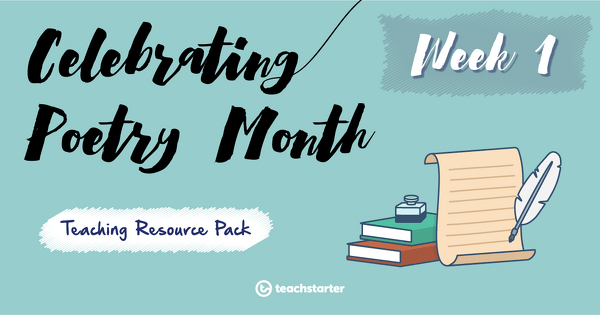
Celebrating Poetry Month in the Primary Grades - Week 1
Celebrate National Poetry Month in the primary classroom with this planning guide and set of resources.
- Plus Plan
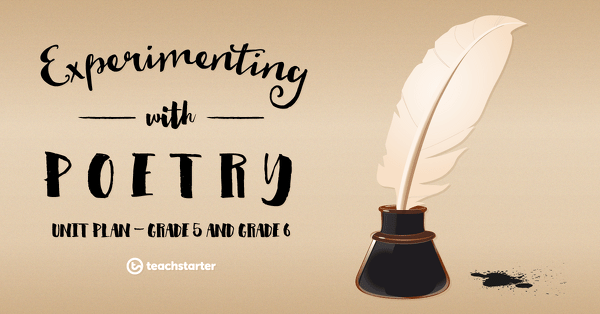
Experimenting with Poetry Unit Plan - Grade 5 and Grade 6
This English unit addresses the common elements of poetry and explores how these may be applied to shape poems, limericks, odes and simple ballads.
- Plus Plan
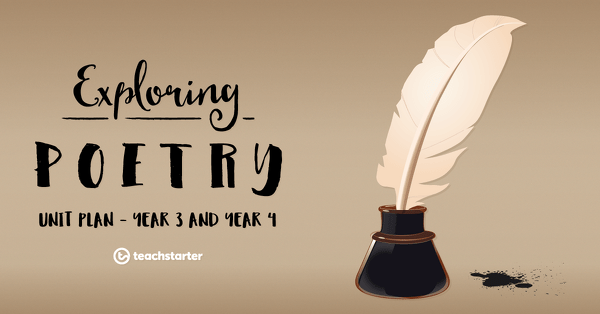
Exploring Poetry - Year 3 and Year 4 Unit Plan
This English unit addresses common poetic devices such as sound play, word play and imagery and explores how these may be applied to narrative poetry.
- Plus Plan
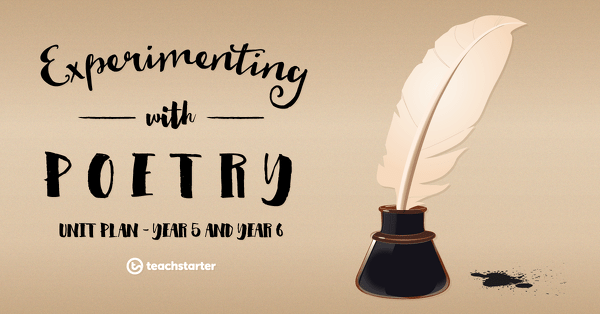
Narrative Poetry - Simple Ballads
A 60 minute lesson in which students will plan and write a simple ballad.
- Plus Plan
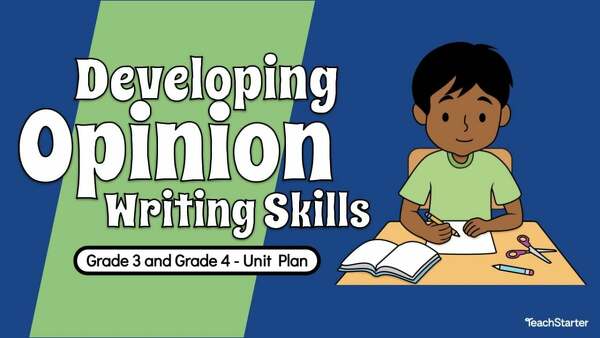
Developing Opinion Writing Skills Unit Plan - Grade 3 and Grade 4
This English unit addresses the genre of opinion writing; specifically, how to write a well-structured opinion piece.
- Plus Plan
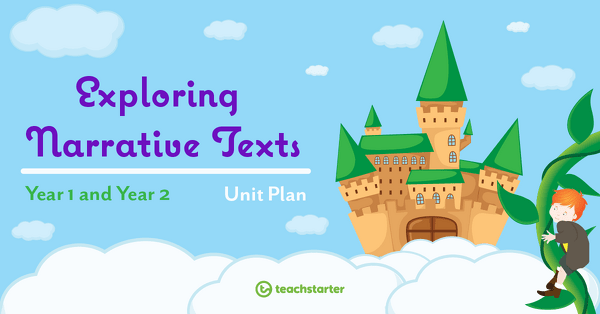
Exploring Narrative Texts Unit Plan - Year 1 and Year 2
This English unit uses fairy tales to introduce the narrative text type to younger students. It addresses the structure, characters and language features of a narrative.
- Plus Plan
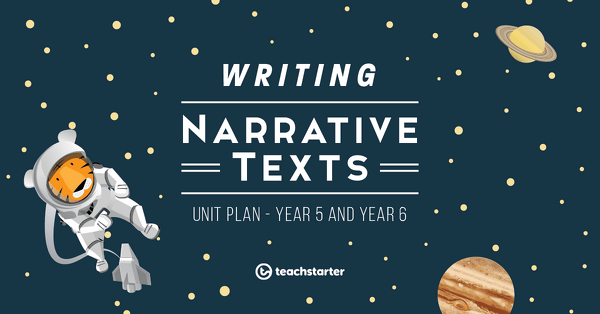
Writing Narrative Texts Unit Plan - Year 5 and Year 6
This English unit addresses the narrative text type; specifically, how to write an engaging narrative text.
- Plus Plan
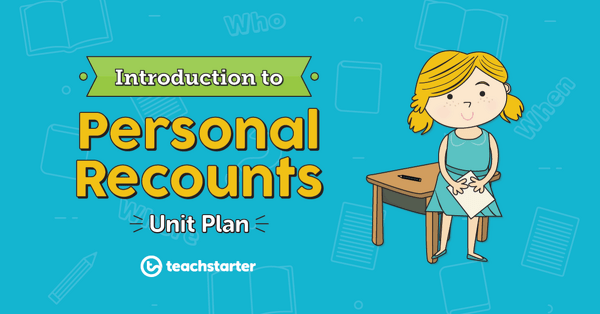
Introduction to Personal Recounts Unit Plan
This writing unit has been designed to introduce the recount text type to younger students; specifically, the purpose, structure, and language features of personal recounts.
- Plus Plan
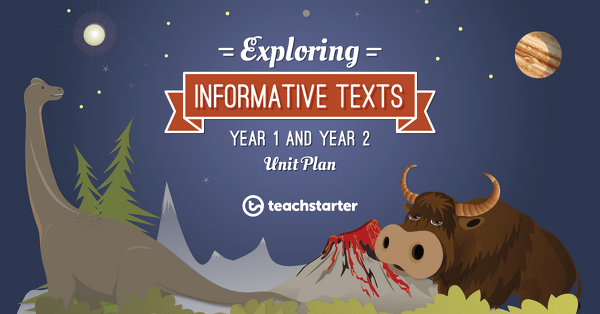
Animal Information Report - Shared Writing
A 60 minute lesson in which students will construct a simple information report about an animal in pairs.
- Free Plan
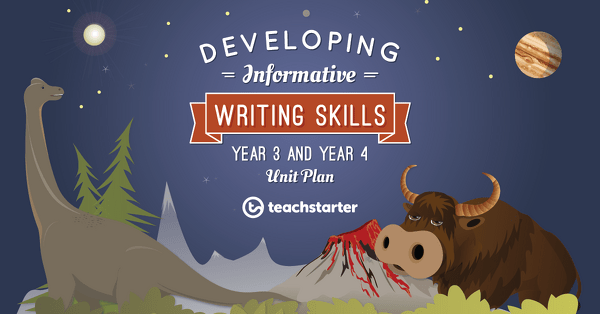
Research Skills - Note-Taking
A 60-minute lesson in which students will take appropriate notes from an informative text.
- Plus Plan
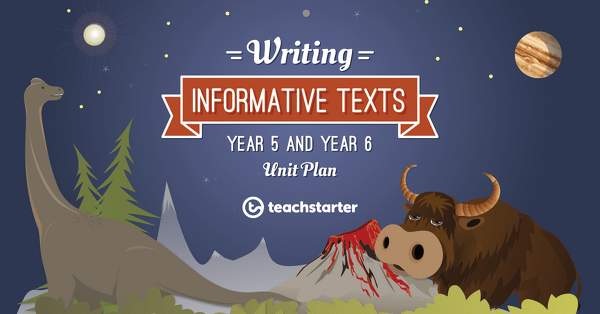
Writing Informative Texts Unit Plan - Year 5 and Year 6
This English unit addresses the informative text type; specifically, how to write a well-structured informative text.
- Plus Plan
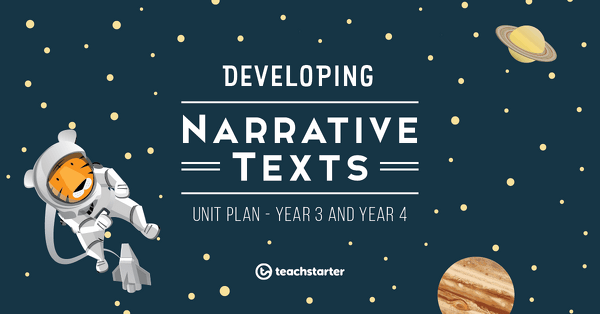
Developing Narrative Writing Skills Unit Plan - Year 3 and Year 4
This English unit addresses the narrative text type, specifically, how to plan and write an engaging story.
- Plus Plan
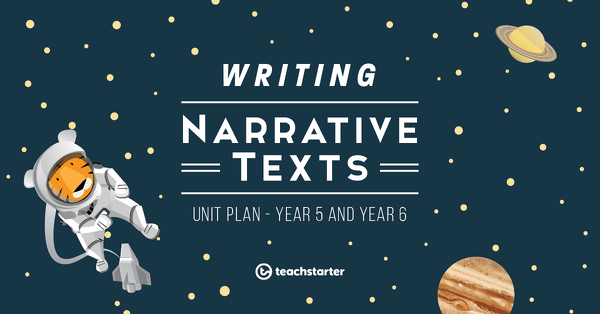
Narrative Features - Building a Character
A 60 minute lesson in which students will use descriptive language effectively to build a character.
- Plus Plan
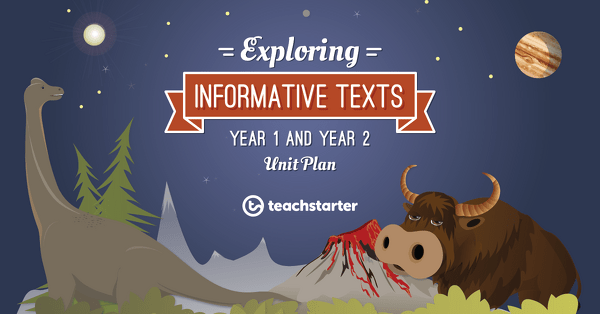
Animal Information Report - Modeled Writing
A 60 minute lesson in which students will jointly construct a simple information report about an animal.
- Plus Plan
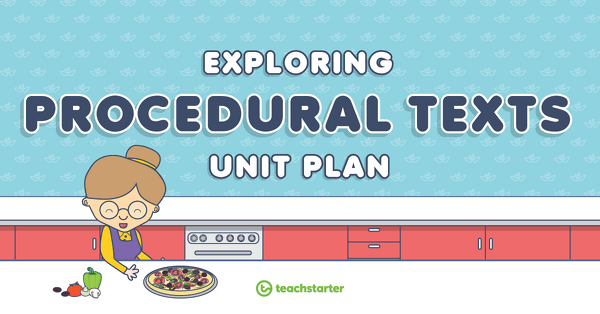
Simon Says!
A 60 minute lesson in which students will explore action verbs, common nouns, and adverbial phrases in procedures.
- Plus Plan
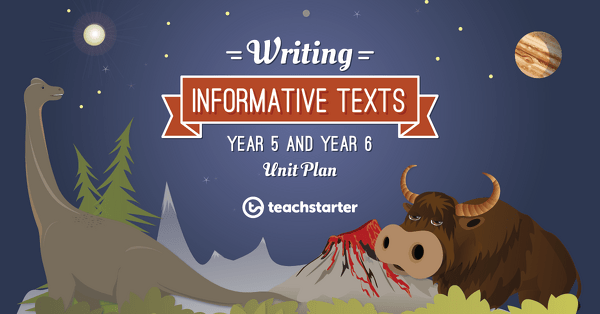
Using A Fact File - Shared Writing
A 60 minute lesson in which students will use a fact file and scaffolding sheet to write an informative text in pairs.
- Plus Plan
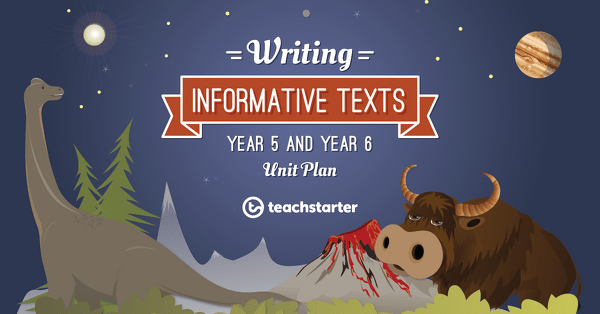
Informative Texts - Language Features
A 60 minute lesson in which students will identify and explore the language features of informative texts.
- Plus Plan
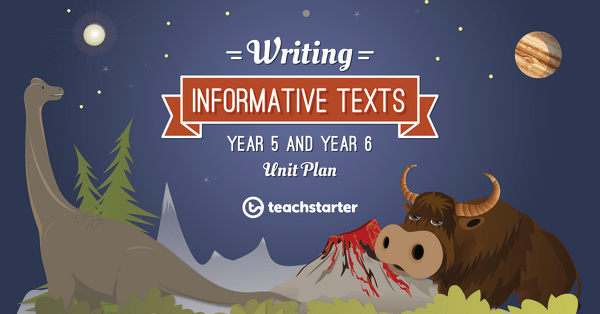
Let's Get Factual!
- Plus Plan
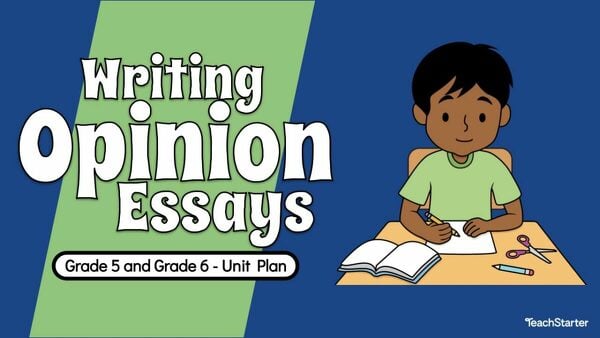
Writing an Opinion Piece Unit Plan - Grade 5 and Grade 6
This English unit addresses the genre of opinion writing; specifically, how to write an effective opinion piece.
- Plus Plan
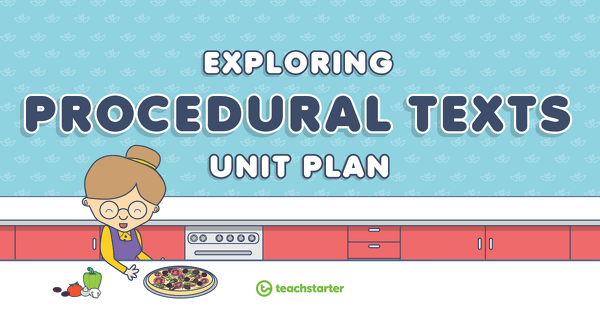
Exploring Procedural Texts Unit Plan
This English Language Arts unit has been designed to introduce procedural texts to younger students. It addresses the purpose, structure and language features of instructions and recipes.